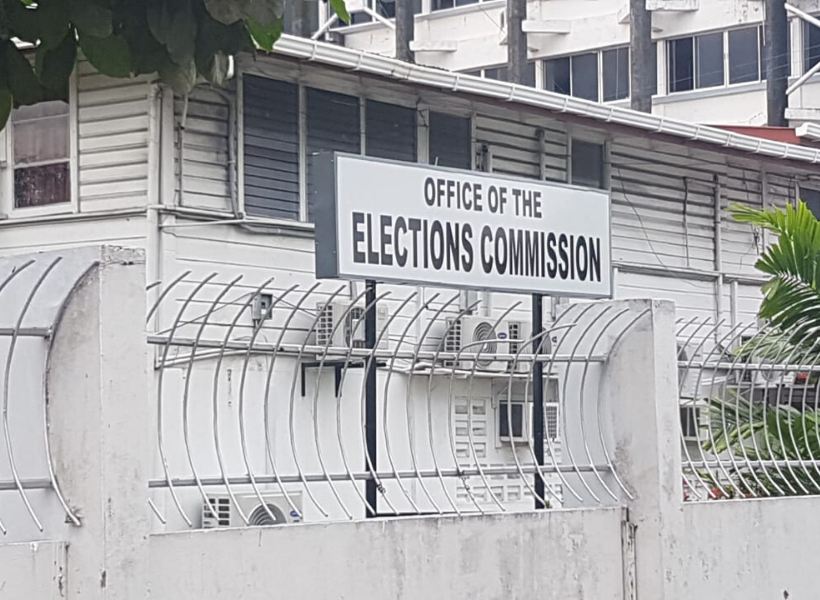Dear Editor,
There were several reports in a certain section of the media highlighting a number of the cost oil audit findings [preliminarily] for the period 2018-2020. Of interest, it was reported that the auditors had requested the production data from ExxonMobil Guyana (EMG). According to the news report, the auditors were reportedly consistently told by EMG that the production data is not part of the scope of the audit, and that the data is with the Ministry of Natural Resources (MNR).
The scope of the cost oil audit is governed by the provisions of the Petroleum Agreement (2016). Understandably, there is likely to be differences in interpretation by the various parties, in this case, by the auditors and EMG (the Contractor). My interpretation, having examined the relevant provisions in the Petroleum Agreement, is that the production data is part of the scope of the audit and inspections, therefore the auditors were in order to request same from EMG. And, although the Ministry ought to be in possession of the data, EMG should not have responded in that manner to the request, assuming that the reports in the media are true and correct.
To this end, the hereunder stated provisions of the Petroleum Agreement (2016) come into effect:
Pursuant to Article 9.1 (a) of the Petroleum Agreement, “the Contractor shall, at all times while this Agreement is in force, maintain and submit to the Minister in accordance with the provisions of the Act and the Regulations, the Petroleum Production License and this Agreement, full and accurate reports, records, returns and accounts of Petroleum Operations in the Contract Area.
Article 9.1 (b) establishes… “all data, well logs, maps, magnetic tapes, cuts of cores and cutting samples and all other geological and geophysical information obtained by the Contractor in the course of carrying out Petroleum Operations hereunder and all geological, technical, financial, and economic reports, studies and analyses generated in relation thereto shall be submitted to the Minister in accordance with the Regulations”.
Article 9.1 (d) establishes… “Petroleum Data shall be the joint property of the Minister and the Contractor but shall become the sole property of the Minister with respect to any area which ceases to be part of the Contract area, whether as a result of relinquishment, or expiry, surrender or termination of a License or otherwise in accordance with the Act, from the date on which such area ceases to be part of the Contract Area”.
Further, Article 9.1 establishes… “nothing in this Article shall be construed as requiring the Contractor to or any of the parties comprising the Contractor to disclose any of its proprietary technology or that of its Affiliated Companies which is not acquired in the course of Petroleum Operations under this Agreement” …
(g) “All Petroleum Data acquired under the 1999 Petroleum Agreement shall be Petroleum data under this Agreement and shall have been considered to have been properly acquired hereunder; however nothing in regard to this Article 9.1 (g) shall affect the rights of the Government in data acquired through multi-client licenses”.
Article 23 – Accounting and Audits
Article 23.1 establishes that “the Contractor shall be responsible for maintaining accounting records relating to Petroleum Operations under this Agreement with the Accounting Procedures set out in Annex C hereto”.
Article 23.2 establishes that “the Minister shall have the right to audit the accounting records of the Contractor in respect of Petroleum Operations in accordance with Accounting Procedure”.
Article 23.3 establishes that “nothing in this Article shall be construed as limiting the right of Government or any officer of Government pursuant to any statutory power to audit or cause to be audited the books of the Contractor”.
Article 31 – Miscellaneous
Article 31.3 establishes that “in the event of any conflict between any provisions in the main body of this Agreement and any provisions in the Annexes, the provision in the main body shall prevail”.
Annex C – Accounting Procedure
1.2 Documentation Required to be Submitted by the Contractor
a) The Contractor shall keep the accounts, operating records, reports, and statements relating to the Petroleum Operations:
(i) in accordance with the terms of the Agreement and this Accounting Procedure; and
(ii) in such form as may be agreed from time to time between the Parties which shall identify the categories of costs, expenses, expenditures, and credits classified in Sections 2 and 3 of this Annex.
(b) Pursuant to (a) above, the Contractor shall make quarterly Statements relating to the Petroleum Operations including:
(i) Production Statement (see section 5 of this Annex).
(ii) Value of Production and Pricing Statement (see section 6 of this Annex).
(iii) Statement of Expenditures and Receipts (see section 7 of this Annex).
(iv) Cost Recovery Statement (see section 8 of this Annex).
(v) End of Year Statement (see section 9 of this Annex).
(vi) Budget Statement (see section 10 of this Annex).
Annex C Section 1.5 of the Petroleum Agreement (2016) prescribes the scope of the Audit and Inspection Rights of the Government. Specifically, Section 1.5 (a) states that…” for the purposes of auditing, the Minister may audit, examine, and verify…all charges and credits relating to the Contractor’s activities under the Agreement and all books of accounts, accounting entries, material records and inventories, vouchers, payrolls, invoices and any other documents, correspondence, and records necessary to audit and verify the charges and credits”.
Based on my interpretation, records and inventories and any records necessary to conduct the audit includes the production data, which forms a substantive part of the Petroleum operations”.
Additionally, I have noted that there is a view that there is no penalty for breaches that are uncovered pursuant to the audit exercise, that are likely to impact the Government’s share of profit oil.
Contrary to this view, Annex C Section 1.5 (b) states that “all adjustments from an audit agreed to by Contractor and the Minister conducting the audit shall be reflected promptly in the accounts by the Contractor and any consequential adjustments in Crude Oil entitlements shall also be made promptly.
This provision goes onto state that “in the event that an audit claim by the Minister is not settled to the Minister’s satisfaction by the Contractor’s reply as provided for above the Contractor shall be entitled to recover any disputed amounts pending final resolution of the claim.
However, any subsequent adjustments in the Minister’s share of Profit Oil following resolution of the claim shall be repaid with interest, at the agreed interest rate as first claim from Contractor’s share of future profit oil. In the event that the Contractor’s share of profit oil is insufficient to provide for the Minister’s extra entitlement including interest, the Contractor shall promptly make an equivalent payment in United States dollars to the Minister”.
Considering the foregoing provision at Annex C Section 1.5 (b), this means that in relation to the current disputed US$214 million, whenever that matter is settled through the appropriate channel provided for in the Petroleum Agreement, if following the final settlement the Government share of profit oil has to be adjusted upwards, an agreed interest rate shall apply. Effectively, in this circumstance, the application of an interest rate is a form of penalty.
Concluding Remarks
In accordance with the provisions in the Petroleum Agreement that governs the audit and inspection rights of the Government, together with the provisions contained in Articles 9, 23, 31 and Annex C Section 1.2, 1.5, the Contractor is contractually obligated to supply the auditors with production data and any other information and/or documentations requested by the auditors, in order to properly conduct the audit and inspection exerciseon behalf of the Government.
Finally, with respect to penalties, the application of an agreed interest rate to the settlement of any disputed amounts to the Government’s share of profit oil, is effectively a form of penalty, which is provided for in the Petroleum Agreement.
Yours respectfully,
Joel Bhagwandin











